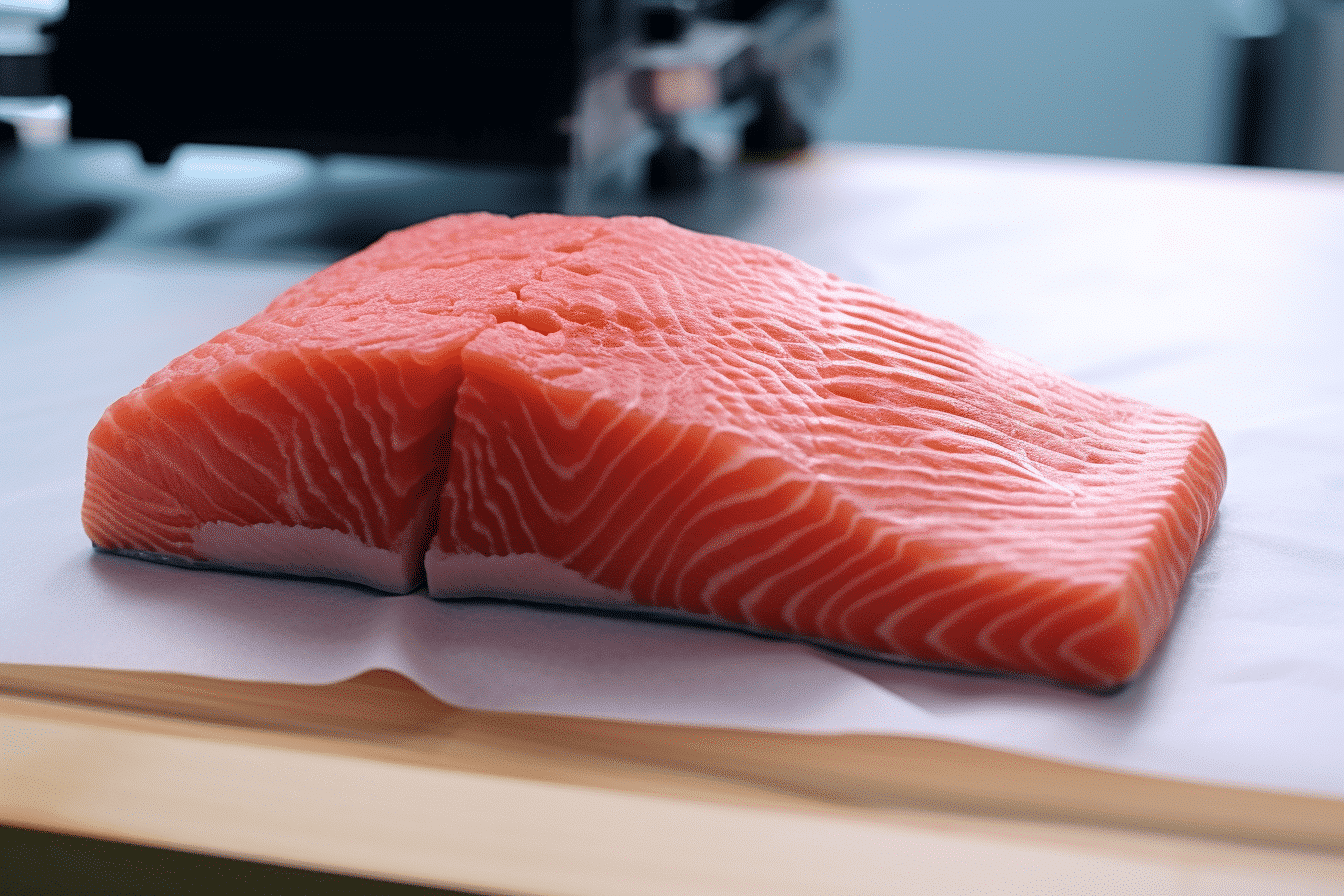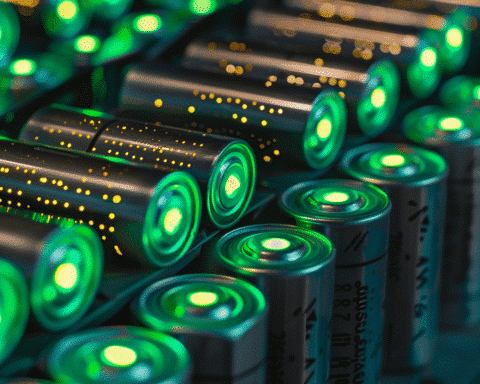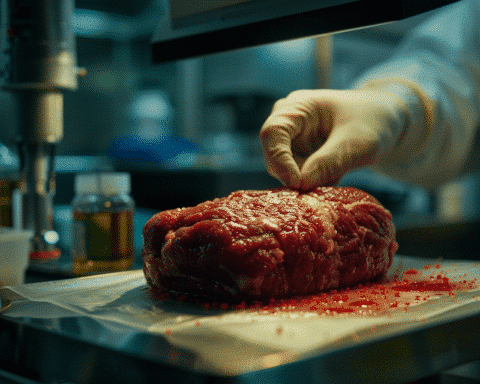A groundbreaking development in the world of alternative food has emerged as 3D-printed vegan salmon finds its way onto the shelves of Austrian supermarkets. Created by the innovative food tech startup Revo Foods, this unique creation, known as “THE FILET – Inspired By Salmon,” represents the first-ever 3D-printed food product to make its way to mainstream retail.
This revolutionary salmon alternative is crafted from mycoprotein, a protein source derived from filamentous fungi. The product boasts an impressive nutritional profile, containing essential vitamins and omega-3 fatty acids. It’s also high in protein, providing 9.5 grams per 100 grams, although this falls slightly short of the protein content found in conventional salmon.
Revo Foods collaborated with the startup Mycorena to develop mycoprotein specifically engineered for 3D printing. This achievement represents years of research and development aimed at pushing the boundaries of food production technology. Prior experiments in 3D-printed food have included laser-cooked cheesecakes and lab-grown meats.
The introduction of 3D-printed food products to the market aligns with the broader goal of making food production more sustainable. The fishing industry, in particular, faces concerns regarding overfishing, with an estimated 34 percent of global fish stocks currently overexploited. Overfishing is the result of catching fish at a pace that surpasses their ability to reproduce, ultimately causing a decrease in their populations.
Emissions are also a significant concern in traditional food production, accounting for over a quarter of global greenhouse gas emissions. Within this sector, 31 percent of emissions originate from livestock and fish farms, while an additional 18 percent are attributed to supply chain activities, including processing and transport.
Revo Foods proudly reports that the production of their vegan salmon fillet results in a remarkable reduction in environmental impact. Compared to conventional salmon fishing and processing, this innovative process generates 77 to 86 percent less carbon dioxide emissions and consumes 95 percent less freshwater resources.
The success of this pioneering product hinges on its ability to recreate an authentic taste that appeals to the flexitarian market. Flexitarians, individuals who primarily follow a vegetarian diet but occasionally consume meat or fish, represent a growing consumer base seeking sustainable and tasty alternatives.
As 3D-printed vegan salmon makes its debut on store shelves, it signals the potential beginning of a new era in food production and sustainability. The outcome of this venture will undoubtedly be closely watched, as it holds the promise of reshaping how we approach food production, reduce environmental impact, and cater to the evolving tastes of consumers. Whether this novel creation will enjoy widespread adoption remains to be seen, but it undeniably signifies a major leap forward in the quest for more sustainable and innovative food choices.
In a world where concerns about overfishing and environmental impact are increasingly pressing, the availability of 3D-printed vegan salmon may offer a glimmer of hope for a more sustainable and delicious future.




